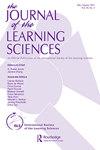“他们只是学生。“没有明显的区别”:对本科微积分教学中回避色彩、性别中立的教师话语的批判性话语分析
IF 3.9
1区 教育学
Q1 EDUCATION & EDUCATIONAL RESEARCH
引用次数: 2
摘要
背景:尽管有研究记录了少数族裔学生在本科数学课上被边缘化的经历,但微积分教学作为高等教育中种族化和性别不平等的一个来源,一直没有得到充分的研究。本研究通过调查一所大型、公立、历史悠久的白人研究型大学的数学教师对种族和性别对微积分教学意义的看法,填补了这一研究空白。方法以色盲、种族主义和意识障碍理论为指导,对7名本科微积分教师的教学事件感知进行批判性话语分析。我们的分析揭示了两个主要话语:(i)种族和性别是大学生微积分中不显著的社会标记;客观地认为教学活动不分种族和性别。我们说明了微积分教师如何以不同的方式参与这些色盲话语以及挑战这些教学概念的话语。我们还强调了教学实践报告中的教师意识障碍如何反映了强化有色人种歧视的主导话语的潜在操作化。由于对教师对数学中种族平等的看法的研究有限,我们的研究记录了数学教师中回避肤色、性别中立的话语如何塑造了教学方向,从而加强了微积分在STEM高等教育中的把关作用。为种族和性别意识的本科数学教学和教师发展提供了启示。本文章由计算机程序翻译,如有差异,请以英文原文为准。
“They’re just students. There’s no clear distinction”: A critical discourse analysis of color-evasive, gender-neutral faculty discourses in undergraduate calculus instruction
ABSTRACT Background Calculus instruction is underexamined as a source of racialized and gendered inequity in higher education, despite research that documents minoritized students’ marginalizing experiences in undergraduate mathematics classes. This study fills this research gap by investigating mathematics faculty’s perceptions of the significance of race and gender to calculus instruction at a large, public, historically white research university. Methods Theories of colorblind racism and dysconsciousness guided a critical discourse analysis of seven undergraduate calculus faculty’s perceptions of instructional events. Findings Our analysis revealed two dominant discourses: (i) Race and gender are insignificant social markers in undergraduate calculus; and (ii) Instructional events can be objectively deemed race- and gender-neutral. We illustrate how calculus faculty varyingly engaged these colorblind discourses as well as discourses that challenged such conceptions of instruction. We also highlight how faculty dysconsciousness in reports of instructional practices reflect potential operationalization of dominant discourses that reinforce colorblind racism. Contribution With limited research on faculty perspectives on racial equity in mathematics, our study documents how color-evasive, gender-neutral discourses among mathematics faculty shape orientations to instruction that reinforce the gatekeeping role of calculus in STEM higher education. Implications are provided for race- and gender-conscious undergraduate mathematics instruction and faculty development.
求助全文
通过发布文献求助,成功后即可免费获取论文全文。
去求助
来源期刊

Journal of the Learning Sciences
Multiple-
CiteScore
10.70
自引率
5.30%
发文量
17
期刊介绍:
Journal of the Learning Sciences (JLS) is one of the two official journals of the International Society of the Learning Sciences ( www.isls.org). JLS provides a multidisciplinary forum for research on education and learning that informs theories of how people learn and the design of learning environments. It publishes research that elucidates processes of learning, and the ways in which technologies, instructional practices, and learning environments can be designed to support learning in different contexts. JLS articles draw on theoretical frameworks from such diverse fields as cognitive science, sociocultural theory, educational psychology, computer science, and anthropology. Submissions are not limited to any particular research method, but must be based on rigorous analyses that present new insights into how people learn and/or how learning can be supported and enhanced. Successful submissions should position their argument within extant literature in the learning sciences. They should reflect the core practices and foci that have defined the learning sciences as a field: privileging design in methodology and pedagogy; emphasizing interdisciplinarity and methodological innovation; grounding research in real-world contexts; answering questions about learning process and mechanism, alongside outcomes; pursuing technological and pedagogical innovation; and maintaining a strong connection between research and practice.
 求助内容:
求助内容: 应助结果提醒方式:
应助结果提醒方式:


